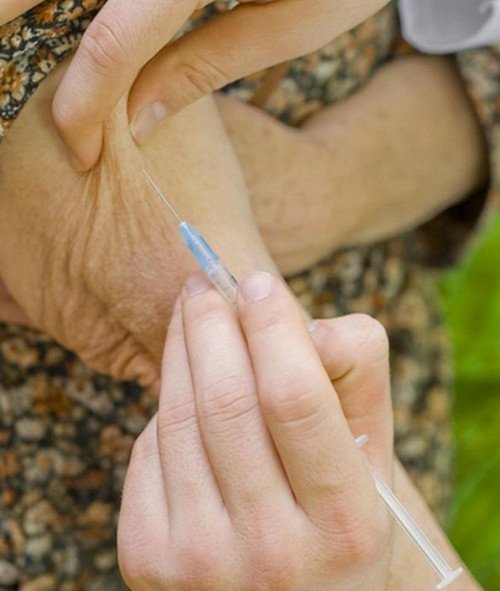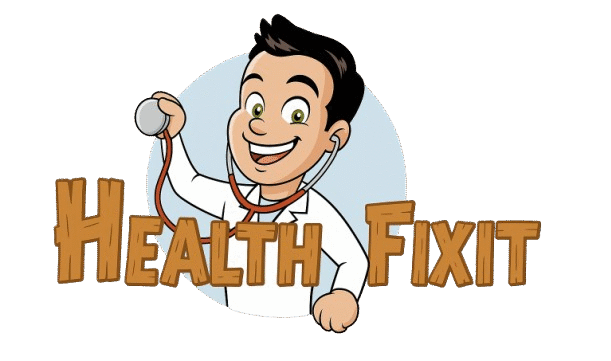What is a collapsed vein?
A collapsed vein is a blood vessel that lost tension in its wall. The veins swell and are not functional for a certain period of time.
However, it is also possible to have a permanent collapsed vein. There are a lot of contributing factors to a collapsed vein.
What causes collapsed veins?
- Use of blunt needles
- The vein has long been used as a route for drug injection
- Too strong drugs introduced via IV route/collapsed veins from drug use
- Improper intravenous injection technique
- Too much blood drawn from the vein/veins collapse when giving blood
- Vascular conditions like varicose veins and high blood pressure
- Abrupt removal of needle after injection
- Collapsed vein in arm after IV line insertion (4)
Symptoms
- Pain (sharp in nature) in the IV site
- Skin discoloration (the skin looks bluish)
- Cold, clammy hands and feet caused by blood flow obstruction
- Itching in the IV site (6)
Along with the above mentioned symptoms, you will also notice that you won’t be able to raise the affected site. Scar tissue formation is obvious and it pulls the sides of the veins together.
What does a collapsed vein feel like? If you touch the affected vein, there is no bounce because that vein is no longer filled with sufficient amount of blood. If it is a surface vein, you will no longer see it, especially if your skin is pale. (7, 9)

Image 1: An intravenous injection introduced to the arm of an elderly patient.
Picture Source: images.wisegeek.com

Picture 2: A comparison between a normal vein and a varicose vein.
Photo Source: www.familyhealthonline.ca
Complications
What happens if your vein collapses? A collapsed vein can significantly affect the circulation of blood in the body. There are instances when a collapsed vein could lead to the formation of smaller veins. Too small veins don’t allow sufficient flow of blood.
An impaired blood circulation could lead to cardiovascular problems, kidney-related disease, and stroke.
Do blood veins grow back? Yes, but they are not as large as the previous veins. They can’t be used for future intravenous injections. (2, 3)
What does it mean when you blow a vein?
A blown vein is similar to that of the collapsed vein. However, a blown vein is a term used specifically for ruptured vein.
A vein is punctured, which causes the blood to leak outside of the vein. It spills out into the surrounding area. In this scenario, you cannot inject, draw blood, or create IV line on the affected veins.
A blown vein is not that dangerous, but needs to be treated right away. There are a number of factors causing blown vein such as using too large needle, the needle insertion is not done correctly, or it could be due to a needle implanted too deep into the vein.
Instead of perforating one side, you ended up perforating both sides, which caused the blood to leak out. Veins that are too fragile or thin are prone to collapsing. Pediatric and geriatric patients are more prone to vein collapsed than adults. (1, 4, 8, 10)
Collapsed Vein Treatment
The treatment for collapsed veins is pretty simple, but it has to be executed the soonest time possible. Once the symptoms of collapsed vein is observed, injecting into the vein should be stopped right away to prevent further damage.
To alleviate the inflammation and hasten healing, a combination of clinical and home management approach should be used. They are the following:
- Vitamin supplement – Increasing the intake of vitamin C promotes healing of the vein. It also helps alleviate inflammation.
- Eat foods rich in bioflavonoids – Bioflavonoids promote vein health. Excellent sources of bioflavonoids are mango, pineapple, papaya, beet, spinach, onion, and red cabbage.
- Increase your intake of antioxidants – Great sources of antioxidants are legumes, garlic, beans, cayenne pepper, and whole grains.
- Compression stocking and leg elevation – In case of vein collapse secondary to peripheral vascular disease, leg elevation and compression stockings are helpful.
- Anticoagulants – The doctor will prescribe anticoagulants in case a blood clot is formed. Blood clots can block the flow of blood.
- Consume foods low in fat along with fluid management.
- Rest the vein for a while. If the patient badly needs to receive injection, you need to rotate the injection site to prevent further damage. (5, 6, 9, 10)
What to keep in mind?
How do veins collapse? The lack of strength in the supportive cells causes the vein to collapse. It is primarily associated with use and abuse of hypodermic needle. You are prone to experiencing collapse vein if your body lacks nutrients.
Collapsed vein can be prevented if the health care practitioner should be very careful when injecting something into a patient’s vein. Do not introduce too much IV fluid to avoid sudden rise of blood pressure. A severely high blood pressure could overwhelm the veins. If not managed right away, it could lead to vein collapse. (2)
A collapsed vein is an indication that the vein has undergone severe trauma. Hence, it is important to keep the vein rested to allow it to heal on its own. If the patient is on long-term injection, the health care provider will modify the treatment. Instead of intravenously, there is a possibility of injecting the patient via intramuscular or subcutaneous route. (3, 4)
You should avoid doing things that can further complicate the condition of the patient. One of the medical conditions leading to collapsed vein is chronic venous insufficiency. This problem can be prevented by simply avoiding standing or sitting for a long period of time.
If your job requires you to stand for a long period of time, then you should wear a compression stocking. If you are obese, you should exert conscious effort to lose the excess weight. (1, 4, 6)
Outcome
Do collapsed veins ever come back? If the vein collapsed is permanent, then there is no way for it to recover. The human body has a natural way of coping to losses.
In case of collapsed vein, smaller veins will be created so as to ensure the proper circulation of blood. However, small veins cannot receive intravenous injection. (8)
References:
- http://www.nursetheory.com
- https://en.wikipedia.org
- www.belmarrahealth.com
- www.geekloveshealth.com
- www.wisegeekhealth.com
- www.simple-remedies.com
- www.quora.com
- www.nursetheory.com
- www.wikihow.com
- luxury.rehabs.com
